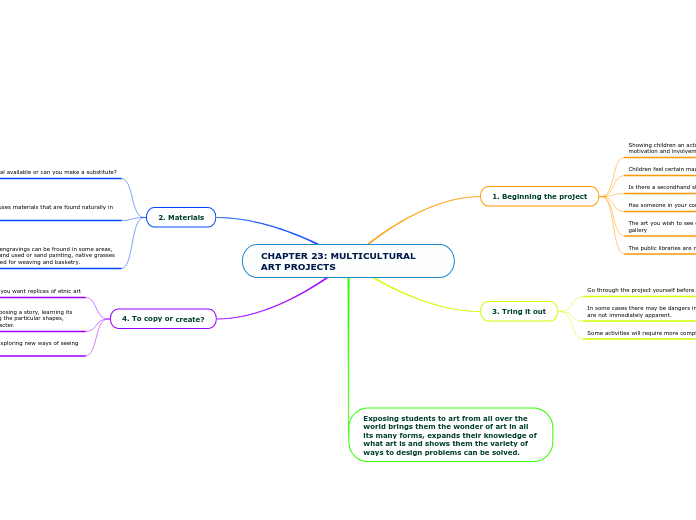CHAPTER 23: MULTICULTURAL ART PROJECTS
1. Beginning the project
Showing children an actual piece of at brings the highest motivation and involvement.
Children feel certain magic about the real thing.
Is there a secondhand shop in your community?
Has someone in your community traveled abroad?
The art you wish to see can be found only in a museum or art gallery
Make arrangements in advance
The public libraries are rich resource places.
3. Tring it out
Go through the project yourself before presenting it
In some cases there may be dangers in the art materials that are not immediately apparent.
Some activities will require more complex skills
Exposing students to art from all over the world brings them the wonder of art in all its many forms, expands their knowledge of what art is and shows them the variety of ways to design problems can be solved.
2. Materials
Is the same material available or can you make a substitute?
Most indigenous art uses materials that are found naturally in the environment
The school usually has basic art supplies
Look further for other often more exciting materials
Use waste products from the home
Slate for use in rock engravings can be fround in some areas, sand can be colored and used or sand painting, native grasses and weeds can be used for weaving and basketry.
4. To copy or create?
Do you want replicas of etnic art
Do you want to use an art form as a basis for inspiring the child’s own creativity?
Children enjoy doing research, choosing a story, learning its meaning in that culture, and using the particular shapes, symbols, and colors for each character.
Use the art form as a method of exploring new ways of seeing and of expressing oneself.
